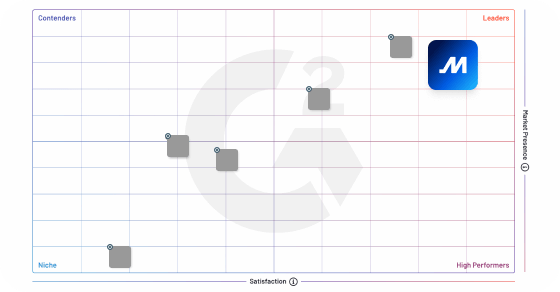Construction
Construction fleet tracking
Construction fleet tracking describes the process of monitoring and managing the movement of vehicles that transport materials to and from a job site, haul heavy equipment, or deliver supplies. A tracking system gives construction companies real-time visibility into trucks, equipment, and personnel. Fleet tracking can also enable them to optimize their operations, improve efficiency, and reduce costs.
Learn morePre-construction technologies
Many pre-construction technologies are used to assist the planning and execution of construction projects before the actual work begins. Some of these solutions focus on optimizing the process of transportation of equipment, tools, and materials. The main objective is to improve efficiency, reduce costs, and enhance safety.
Learn moreMaterial handling equipment
Material handling equipment safely moves and stores goods within a warehouse or transportation facility. This equipment includes forklifts, conveyor belts, pallet jacks, and other similar machinery.
Learn moreHeavy equipment
Heavy equipment refers to the large vehicles and machinery used for transportation, construction, and other heavy-duty applications. These machines are designed to handle heavy loads and perform tasks that require significant power and strength. Common examples of heavy equipment include dump trucks, excavators, bulldozers, and cranes.
Learn moreEarth moving equipment
Earth-moving equipment enables efficient transportation of large quantities of soil, rock, and other materials. This range of heavy machinery is used for the excavation, transportation, and placement of earth materials on construction sites. This equipment is designed to handle a variety of tasks, from digging trenches and excavating foundations to grading roads and hauling materials across rugged terrain.
Learn moreConstruction vehicle
A construction vehicle is a type of heavy-duty machinery specifically designed to perform a wide range of tasks such as excavation, grading, and demolition. Construction vehicles are also used to move and transport heavy materials, equipment, and supplies to and from construction sites.
Learn moreConstruction supply chain
The construction supply chain connects various stakeholders involved in the delivery of construction materials and supplies from the manufacturer to the end-user. It encompasses every activity that takes place from the time the materials are sourced to the point where they are used in construction projects. The primary aim of the construction supply chain is to ensure that construction projects are completed on time, within budget, and to the required standards.
Learn moreConstruction safety technology
Construction safety technology aims to improve safety in the transportation of goods and equipment to and from construction sites. This wide range of tools and systems is designed to help ensure safety measures are followed, reduce the risk of accidents, and promote the well-being of truck drivers and other road users.
Learn moreConstruction safety
The construction industry must address several safety aspects throughout the process. One facet involves fleet vehicles and equipment and ensuring the safety of truck drivers, other workers on the construction site, and pedestrians and motorists in the surrounding areas. This is particularly important in construction as the industry transports heavy machinery, equipment, and construction materials to and from sites.
Learn moreAssociated Builders and Contractors (ABC)
The Associated Builders and Contractors (ABC) is a trade association that represents non-unionized contractors and construction-related businesses in the United States. ABC is a member-driven organization that aims to promote free enterprise and competition in the construction industry by advocating for policies that create a level playing field for all contractors, regardless of affiliation or size.
Learn moreConstruction fleet management software
Construction fleet management software is a technology designed to manage and streamline industry operations. This all-in-one solution helps companies manage and track all their vehicles and drivers as well as fuel and maintenance activities.
Learn moreConstruction fleet management
Construction fleet management is the process of effectively managing all equipment and vehicle assets for construction and building projects. Effective management of trucks and other vehicles used to transport equipment, materials, and personnel can ensure that projects are completed on time, on budget, and with minimal disruption.
Learn moreConstruction equipment tracking
Construction equipment tracking monitors and manages the heavy equipment used on job sites. A tracking system enables construction companies to enjoy visibility into their machinery and optimize their operation, leading to better efficiency and cost-effectiveness.
Learn moreConstruction equipment operator
A construction equipment operator is responsible for operating and maintaining heavy machinery used in construction sites, such as bulldozers, excavators, and backhoes. Operators are typically employed by construction companies to ensure that the various heavy machinery is in optimal working condition so that projects are completed within deadlines.
Learn moreConstruction equipment maintenance
Construction equipment maintenance is the regular upkeep and repair of vehicles and equipment used in construction activities. This includes heavy-duty trucks, trailers, bulldozers, excavators, cranes, and other machinery used in building roads, bridges, buildings, and other infrastructure.
Learn moreConstruction equipment
Construction equipment refers to machinery and tools that are used to execute construction tasks, allowing projects to be completed faster, more efficiently, and at a lower cost.
Learn moreBuilding information modeling (BIM)
Building information modeling (BIM) is a digital representation of physical and functional characteristics of a building or structure. It enables the creation of a virtual model that can be used to design, construct, and manage buildings. The trucking industry has also been impacted by BIM as it can be used to optimize the transportation of building materials.
Learn moreAssociated General Contractors of America (AGC)
The Associated General Contractors of America, or AGC, is a national trade association that represents the interests of over 27,000 firms in the construction industry. The AGC’s mission is to promote and advance the industry through advocacy, education, and collaboration with other stakeholders.
Learn more


